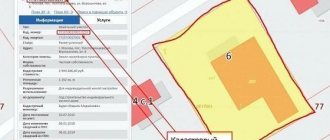Free privatization of housing began in 1991. But the dacha plots were in a “suspended” state until 2006. Citizens, and, presumably, the state, were not entirely clear how to deal with them?
On the one hand, millions of Russian families were the owners of the notorious “five hundred square meters” - a plot in a gardening partnership or similar country real estate “on the ground”. On the other hand, retroactively purchasing land and buildings at full price was clearly an unbearable financial burden for them.
The procedure for registering ownership of a summer cottage existed, but it was so complex, confusing, and ambiguous that not everyone could use it. This meant that for many years most Russians were not sure whether they owned their land or not, and the state had a huge layer of property in the shadow sector of the economy. After all, since the plot is not owned, then it cannot be taxed.
Finally, in 2006, Federal Law No. 93 came into force, immediately dubbed the “Dacha Amnesty” in all circles. It became possible to privatize plots free of charge and in a simplified manner. Initially, the law was limited to 2021, but has now been extended until 2021.
It is possible that events will develop further, as with Federal Law No. 1541-1, which regulates the free privatization of housing. Its validity was also extended several times, and then the law was declared indefinite.
By the way, if the issue of housing privatization is still relevant for you, you can read about it in detail in the article on our portal “How much does it cost to privatize an apartment?” But let's return to land plots.
At the moment, you can privatize land for free until March 1, 2021. As in the case of an apartment, this does not mean that you will not have to pay anything at all. Obtaining some certificates and carrying out some procedures requires payment. But the costs, of course, are incomparable with the market value of the site.
In the article we will clearly define the price order for the privatization of a summer cottage. The final price is influenced by the region, local government regulations and some other factors.
What lands can you get for free?
So, the “Dacha Amnesty” involves the gratuitous transfer of ownership of a plot of land that actually belongs to a family or citizen. But not everyone. The register of plots subject to free transfer is clearly defined. This:
- Plots on which privatized real estate is located
That is, if there is a privatized residential building and outbuildings on a non-privatized plot, you have the right to freely receive ownership of the land located under them and the territory necessary for their operation and maintenance. It is important that they are built before the Land Code comes into force. That is, until 2001.
If buildings are not privatized, the land under them does not become property. It will either have to be purchased or leased.
- Plots under long-term lease
Typically, a long-term lease agreement is for 20+ years. But already three years after its conclusion, you can apply for free privatization of the leased plot.
- Plots received for gardening, individual housing construction, private plots
If the plot was originally taken for the construction of a private residential building, amateur gardening (essentially, “for a summer residence”), or to conduct a subsidiary plot on it (but not farming), then you already have all the legal rights to free privatization. All that remains is to arrange everything legally.
- Areas under garages
This registry item most likely does not concern “dacha residents,” since a privatized garage at a dacha is no different from other outbuildings. We are talking about members of garage cooperatives, many of which originated during the Soviet era. Now the owner of each box can become the full owner of the plot on which it is located. Privatization is formalized through the board of the cooperative.
- Land in perpetual use
This paragraph mainly concerns plots received by inheritance. Before the Land Code of the Russian Federation came into force, in Russia (and earlier in the USSR) land plots were provided to citizens for indefinite use. Now, even if the plot was not privatized by the testator, his heirs can begin the procedure on the same grounds that he had. Naturally, documents are required confirming that the plot was in perpetual use of the deceased person.
Contacting a lawyer
If you do not have experience in registration or you do not want to independently understand all the details of such a procedure as privatization and registration of a land plot, you can always turn to legal services for land management. The lawyer will not only advise and bring you up to date with the matter in a fairly quick time, but will also take on the responsibility of protecting you from illegal actions on the part of the registrar.
After reading this article, you can understand the main problems and errors that arise periodically when submitting papers and making decisions, but this does not insure you against unforeseen situations that often occur in such matters.
Why did the opportunity arise for private free privatization and the transfer of funds from state ownership? This was necessary when our country was transitioning to a market economy, and private property came in exchange for collective ownership. Thanks to these changes, individuals and legal entities have the opportunity to own their own plot of land and use it for personal purposes or rent it out.
Once again, we draw your attention to the fact that privatization is free until 2020, but only on condition that the designer has not previously used his one-time right to free privatization.
List of documents
At first glance, the package of documents required for the free privatization of a family-owned land plot is not very extensive. You only need to prepare three “papers”:
- A title document for land, which may be: An act on the transfer of a land plot for use to a citizen or citizens (issued by the government body that carried out this transfer)
- Long-term lease agreement (original and copy)
- Certificate of inheritance (issued by a notary to the heir)
But in practice, most likely, more documents will be needed. Registrars may request additional certificates required by local authorities. Considering that the site is most often located quite far from your permanent place of residence, each extra trip to submit documents greatly delays and increases the cost of the procedure.
To avoid this, it is better to consult with a lawyer in advance regarding the exact list of required documents. This can be done on the Prav.io portal.
Is it possible to save money?
Enterprising and prudent citizens often wonder whether it is possible to save money by privatizing land?
There are two types of savings:
- saving money;
- saving personal time and nerves.
Land privatization is not considered a particularly costly procedure. At least until you turn to intermediary companies for help. Representatives of such companies provide services for registering objects as private property for money. For example, they can help prepare a cadastral passport, make a request for extracts, act as an intermediary when submitting an application to Rosreestr, etc.
Therefore, if you want to save money, try to do the design yourself.
The instructions on our portal will come to your aid. However, you can always contact a lawyer. We recommend that you evaluate the possibilities of a free consultation on our website. It is very convenient, economical and profitable! Attention!
- Due to frequent changes in legislation, information sometimes becomes outdated faster than we can update it on the website.
- All cases are very individual and depend on many factors. Basic information does not guarantee a solution to your specific problems.
That's why FREE expert consultants work for you around the clock!
- via the form (below), or via online chat
- Call the hotline:
- Moscow and the Region
- St. Petersburg and region
- FREE for a lawyer!
By submitting data you agree to the Consent to PD Processing, PD Processing Policy and User Agreement.
Anonymously
Information about you will not be disclosed
Fast
Fill out the form and a lawyer will contact you within 5 minutes
Tell your friends
Rate ( 3 ratings, average: 5.00 out of 5)
Author of the article
Maxim Privalov
Lawyer. 2 years of experience. I specialize in civil disputes in the field of housing and family law.
Author's rating
Articles written
610
Document costs (table)
We have prepared a table for you that allows you to calculate and plan the costs of processing documents.
| Title of the document | Price |
| Extract from the Unified State Register of Real Estate | From individuals – 300 rubles |
| Cadastral passport | From 2000 rubles depending on the region |
| Geodetic survey of the object | From 7,000 rubles to 15,000 rubles (also depending on the region) |
| Archival references | 200-300 rubles or free (depending on the region) |
| Notarial services | From 1000 rubles |
Of course, the figures are approximate, the exact price regulations are set by local authorities, in addition, you may already have some documents.
Urgent privatization
Services for the rapid registration of plots of land as private property and assistance in privatization are provided by companies . They will make a request for extracts, help prepare a cadastral passport, or become an intermediary in Rosreestr.
With standard free privatization, you will have to collect a lot of information and spend a lot of time and effort on it. The applicant will also expect additional costs, such as a lawyer.
If everything goes smoothly, then, at best, the right to property can be obtained within 1-4 months. The object may not be registered in the cadastral register, which delays the process for another 3 months. Urgent privatization may be a way out of the situation.
If a plot of land is sold and there are no title documents, privatization can be accelerated and completed within 10-14 days . To do this, you need to contact specialized companies, where, using a notarized power of attorney, they will help you quickly collect and register all documents and help with real estate registration.
Help from qualified specialists will cost 35 thousand rubles, and accelerated privatization in 7 days will cost 50 thousand rubles.
This includes additional services, such as restoration of a house warrant, re-registration of personal accounts, consultations on social tenancy agreements.
So, privatization of a land plot should be carried out in a timely manner to avoid problems with property rights . This can be done for free using the legislation of the Russian Federation. If you need to speed up the registration process, you can contact private companies for a fee.
Around the garden plot
To the greatest extent, the “Dacha Amnesty” concerns land plots that have been called “dacha” since Soviet times. Those same “five hundred square meters” in the gardening partnership that grew like mushrooms around cities starting in the 70s.
The land was allocated and registered immediately in a “large piece” - to SNT (horticultural non-profit partnership) or DNT (dacha non-profit partnership). And then it was cut into small sections for each member of the community.
The formal owner of the land was not the person using his dacha, but the structure - the partnership of gardeners and summer residents. That is, the summer resident could be “asked” from the partnership at any time, although, in fairness, it must be said that such cases occurred quite rarely. Federal Law No. 93 allowed such plots to be registered as personal property.
The procedure for registering the privatization of a plot owned by SNT is more complicated than that of an individual plot. A member of a gardening association should first apply to its chairman and send the appropriate application to the local authorities. Only after the application is approved can you begin the procedure of registering the land in your name.
If the dacha was allocated to the citizen personally, the registration procedure will be general - right in Rosreestr. In this case, the simplified registration procedure provided for by Federal Law No. 93 applies, and if possible, it is advisable to use it. The cost of registration consists of payment for the following actions:
| Name | Price |
| Territory demarcation | From 10,000 rubles |
| State duty for privatization of land | According to the “Dacha Amnesty” procedure - 350 rubles, in other cases - 2000 rubles |
| Extract from the Unified State Register of Real Estate | 300 rubles |
Even from the table it is clear that using a simplified procedure is more profitable - the duty is almost six times lower. So it makes sense to have time to privatize the land while the “dacha amnesty” is in effect.
The cost of redemption of the allotment
The redemption value of a land plot is the price at which the plot becomes property.
It is necessary to know it when purchasing land from the administration. The redemption price is determined by regional or federal authorities, as well as local administration bodies. That is, the redemption value is determined by the owner of the land plot. The purchase price is static and does not depend on trends in the real estate market.
To find out the size of the redemption price, you need to submit an application to the municipality for registration of land ownership, attaching documents confirming the status of the owner. These include:
- Resolution on the allocation of a plot of land.
- A property transaction agreement for real estate located on the site.
- Agreement between a citizen and the administration for the lease of land.
The application is considered by the commission at open hearings. If a positive decision is made, a purchase permit is issued, which also indicates the cost of purchasing the land.
According to Article 281 of the Civil Code of the Russian Federation, the interest rate of the redemption value of the plot from the cadastral amount is:
- 50% for the elderly and disabled (the percentage is valid in certain regions of the Russian Federation);
- 20-60% if the plot is leased from the state (how to privatize a leased land plot?);
- 80% when changing the category of land or when intended use.
Attention. Local governments may provide additional benefits or subsidies for pensioners, disabled people and large families.
Ground under the garage
In addition to garage cooperatives, there are individual ones, for the construction of which citizens received permission at different times. The land under such garages is the easiest to privatize - all the provisions of the Dacha Amnesty apply to them. A separate garage building (more precisely, the land under it) is registered in person, directly at Rosreestr or the MFC “My Documents”.
But the land of a garage cooperative is privatized only by collective application. The land is transferred into ownership only after full payment of the share contribution. The registration is carried out by an elected person representing all members of the cooperative. Usually the chairman plays this role.
The main cost of privatizing land under a garage is the preparation of cadastral documentation.
For rent
If the land is leased from a municipality for a long time, the “Dacha Amnesty” is an excellent reason to transfer it to your private property. If the lease was executed no later than November 2001, there should be no problems at all. You just need to complete the full package of necessary documents.
You can see the cost of obtaining documents and certificates required for free privatization of leased land in the table above. The fee will be 2000 rubles. The simplified procedure does not apply to the privatization of leased land.
Reasons for failure to register a land plot
There are a sufficient number of reasons for refusal to provide land by government agencies:
- If the land has already been allocated for the construction of schools, kindergartens or public roads;
- In case of preliminary reservation of a site for military purposes;
- It may happen that the owner of the land, in this case a government agency, does not have the right to transfer it for privatization;
- The land plot may not have clear dimensions due to an error in the document;
- Refusal when trying to submit fake documents or passports;
- If the land has already been leased;
- If the plot has already been privatized;
According to these and some other violations, you may receive a refusal. If you consider the refusal to be unlawful, you still have the right to go to court. If the trial takes place at the state level, it will most likely not be possible to challenge such a decision.
Under a private house
A huge amount of private real estate in Russia is located on land owned by the state. With apartment buildings everything is clear; in this case there is no choice. But the land under a private house can and should be privatized. Until the owner of the house does this, the land will remain on the balance of the state. Therefore, the homeowner cannot dispose of it. And in the event of alienation (for example, for the construction of a state facility), he will receive compensation only for the residential building.
So it is still worth privatizing the land on which a private house stands. You will face costs, but at least you won’t have to buy the land at market value.
So, what expenses will be required to privatize land for individual housing construction?
| Name | Price |
| Registration certificate for the building | 1500 rubles |
| Extract from the Unified State Register of Real Estate | 300 rubles |
| Carrying out the land surveying procedure | From 7000 rubles |
| State duty | 350 rubles for the land under the house and 2000 if other plots are privatized |
| Notarial services | From 1000 rubles |
When the land occupied by your private house or cottage, as well as the territory necessary for its maintenance and operation, is privatized, nothing threatens your property.
A plot of land with a house cannot be alienated without compelling legal reasons. And if such problems do arise (for example, a federal highway passes through it), then you will be entitled to compensation for both the house and the land.
What is land privatization
The term “privatization” means the transfer of ownership of real estate from the state to the individual. In the case of privatization of a land plot, a citizen becomes its owner, which means that his rights to the land are legally protected. He can sell, donate, or bequeath his plot to children or other relatives. Can rent it out and earn income. Or maybe, without worrying about the future, build a house for permanent residence or a holiday home. His land is his property, and only he decides how to manage it.
At the same time, the owner also has responsibilities. He must pay a tax for the land, must use it for its intended purpose and respect the rights of his neighbors. But these nuances, as a rule, are incomparable with the fact of owning land. Privatization of a land plot in SNT or under a private house is a requirement of the present time. If the opportunity to do it exists, it is worth doing.
“There is no separate law on the privatization of land plots,” notes lawyer Yulia Lotova. — The process is regulated by the Land Code of the Russian Federation, adopted in 2001, with changes and amendments that came into force in 2021. As well as other laws, including the so-called dacha amnesty, the privatization of state and municipal property. State authorities are responsible for transferring land ownership to citizens: local administrations, village councils.”
State duty
The preparation of any important document is a paid government service and is subject to a fee. Documents for registration of privatized land in Rosreestr are, without a doubt, important. The fee for them is fixed, its size depends on the nature of the procedure:
- Privatization of land for individual construction, personal subsidiary farming, gardening and vegetable gardening, garages is subject to a fee of 350 rubles from the owner
- Privatization of other plots - in the amount of 2,000 rubles per owner.
The fee must be paid before visiting Rosreestr or “My Documents” (MFC). Without a paid receipt, the application will still not be accepted.
Paid and free procedure
The legislation provides for 2 options for privatization:
- paid;
- free.
A plot of land will have to be privatized for a fee if it was received after 2001, the recipient is a legal entity, and the type of use permit does not apply to those for which the land is privatized free of charge. In fact, paid privatization is the purchase and sale of land from the state.
In order to privatize land for a fee you need:
- Submit an application for allotment to the appropriate authority.
- Within 2 weeks, wait for a positive decision on the provision of a plot of land.
- Draw up a project defining the boundaries of the site.
- Conclude a land purchase and sale agreement.
Land plots that were acquired by an individual before 2001 can be privatized free of charge.
Important. The site must be intended exclusively for individual purposes: garage, housing, country house construction, vegetable gardening, horticulture or farming.
Some categories of land cannot be transferred to private ownership. For example, this applies to areas withdrawn from circulation, used or reserved for socially significant needs (parks, highways, etc.).
For free privatization, it is enough to have a small package of documents, which includes:
- cadastral passport;
- the document on the basis of which the land was obtained;
- passport of a citizen wishing to privatize a plot.
According to the Privatization Law No. 1541-1 of July 4, 1991, free privatization is available to Russian citizens only once in their life . In the future, the land can only be purchased from the state at its cadastral value.
More nuances about the forms and types of privatization of land plots can be read here.
How and where to pay?
The state fee can be paid:
- In cash through any licensed Russian bank or Russian Post
- Via a special terminal
- Through the State Services portal
- Through payment systems
The last method is only theoretically possible. Because an electronic payment confirmation printed by you on your home printer will not be relevant confirmation of payment for government agencies. For it to become this way, it must be stamped with the seal of the bank through which the payment went through.
Thus, paying state duty through electronic systems is simply pointless - you will still have to go to the bank to get a stamp. So, if you want to pay the fee from your PC, it is better to do it immediately through the State Services portal.









